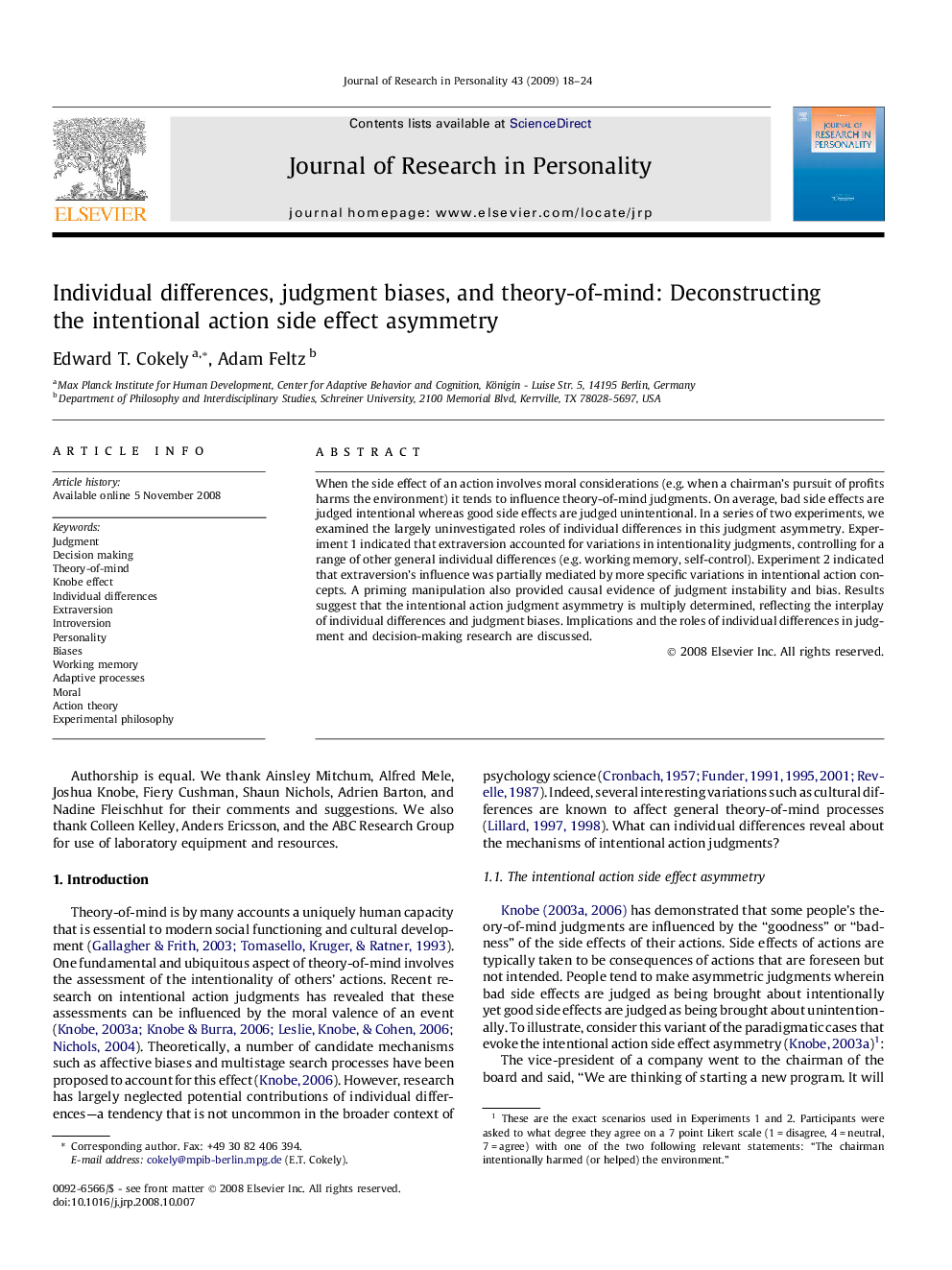| Article ID | Journal | Published Year | Pages | File Type |
|---|---|---|---|---|
| 951825 | Journal of Research in Personality | 2009 | 7 Pages |
When the side effect of an action involves moral considerations (e.g. when a chairman’s pursuit of profits harms the environment) it tends to influence theory-of-mind judgments. On average, bad side effects are judged intentional whereas good side effects are judged unintentional. In a series of two experiments, we examined the largely uninvestigated roles of individual differences in this judgment asymmetry. Experiment 1 indicated that extraversion accounted for variations in intentionality judgments, controlling for a range of other general individual differences (e.g. working memory, self-control). Experiment 2 indicated that extraversion’s influence was partially mediated by more specific variations in intentional action concepts. A priming manipulation also provided causal evidence of judgment instability and bias. Results suggest that the intentional action judgment asymmetry is multiply determined, reflecting the interplay of individual differences and judgment biases. Implications and the roles of individual differences in judgment and decision-making research are discussed.
